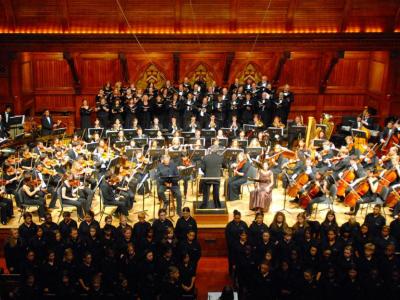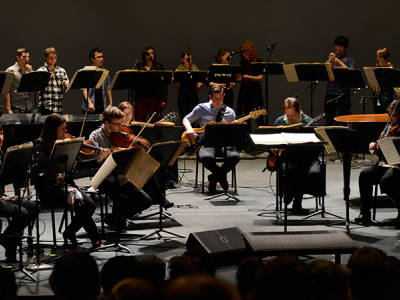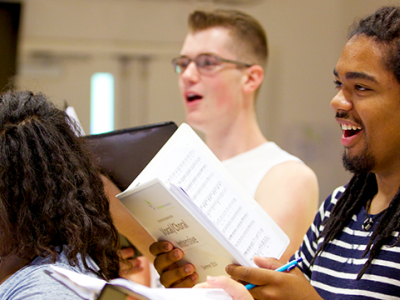What does an Opera Singer do?
Opera singers are highly trained performers whose particular and unusual set of skills arises from the demands of their art form. Contrary to the name, opera singers do more than sing; just as opera combines music and theater, opera singers merge their astounding musical skill with impressive acting and movement ability in order to bring the work of librettists and composers to life.
When not in rehearsal for a show or during the off-season, opera singers spend much of their time learning new material.
Whether cast as a soloist or a chorus member, an opera singer's work on a production begins with theatrical rehearsals, in which performers focus on reading and interpreting the text almost as if it were a play. Concurrently, soloists, chorus members, and the orchestra gather for separate musical rehearsals under the direction of the conductor, who is frequently also the production's music director. In the final weeks leading up to opening night, opera singers may spend as many as six hours each day in rehearsals, with soloists often receiving additional one-on-one instruction from a vocal coach or répétiteur.
Just like actors, opera singers do a large amount of off-stage work in order to prepare for the final performance. This includes learning entrances and exits, mastering props and set elements, memorizing blocking and lyrics, and whatever else is necessary in order to successfully inhabit their character. Additionally, opera singers must master their musical parts and find cohesion with the orchestra and other singers. As if that weren't enough, due to the fact that most operas are in Italian, French, German, English, or Russian, opera singers must also practice diction and learn to express themselves emotionally in a tongue that's not their own. As a result of these varied and particular job requirements, there's no other profession like opera singing in the world.
At a Glance
In the United States, many aspiring opera singers follow a well-trod path: earn a music degree from a college or conservatory, attend graduate school, land a spot in a selective young artist program, spend years auditioning and entering competitions, and, eventually, find consistent work singing small roles. At this point there's a divide between those who are comfortable singing chorus parts and those who pursue the spotlight as soloists. For the luckiest and most talented, each gig will lead to a bigger, better one with a more prestigious opera company. Although some singers carve out less conventional career paths, the bottom line is that this profession requires thorough training, financial resources, and many years to become established.
Becoming a permanent chorus member of an opera company can provide full-time employment and benefits, but many prefer to pursue soloist parts as a freelancer. For college graduates, young artist programs are usually the next step to building a career in opera. Most prominent opera houses and companies have these programs, which essentially function as residencies, giving talented singers an opportunity to improve their craft and make connections with established professionals. These connections are vital as, generally speaking, finding auditions and work opportunities requires tapping into a network of opera professionals.
- Singing and vocal training
- Opera repertoire
- Aptitude for foreign languages
- Acting
- Reading music notation
- Auditioning
- Music theory
- Music history
It is critical for opera singers to develop the emotional depth to inhabit and express the characters they portray. Communication skills are vital—both for performing on the stage and taking direction in rehearsal. Finally, a certain level of determination is essential in this competitive field, where the road to success may be long.
Opera soloists with flourishing careers may spend as many as 10 months each year on the road, while chorus singers with full-time positions typically perform six days per week, averaging 170 performances during the opera season. Chorus members may also join traveling productions, but are less likely to travel internationally.
All opera singers work nights, in addition to rehearsal and other daytime activities. When not in rehearsal for a show, or during the off-season, opera singers spend much of their time learning new material, translating text, studying and improving their languages, developing their acting skills, and attending to their most vital task: caring for and cultivating their voice.






